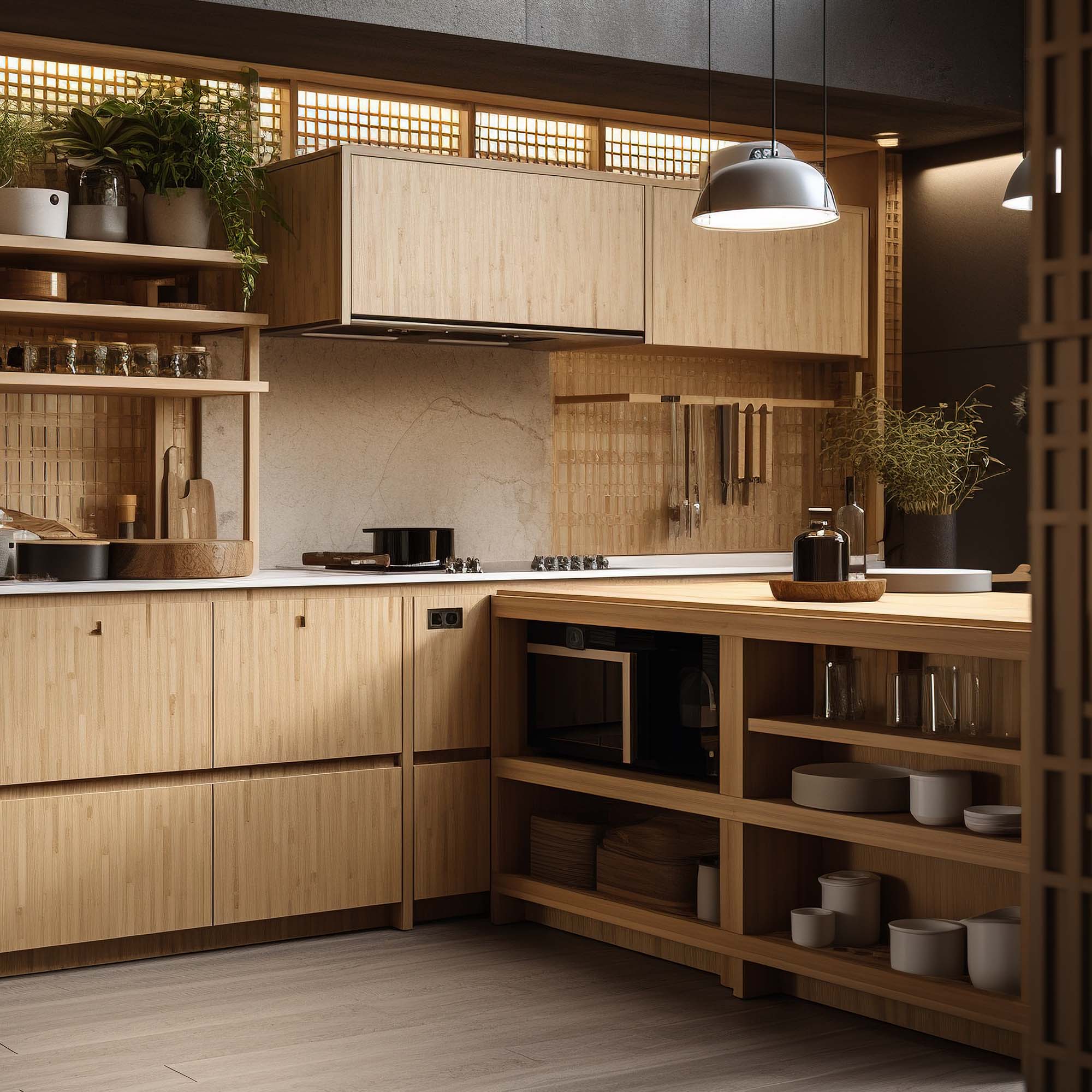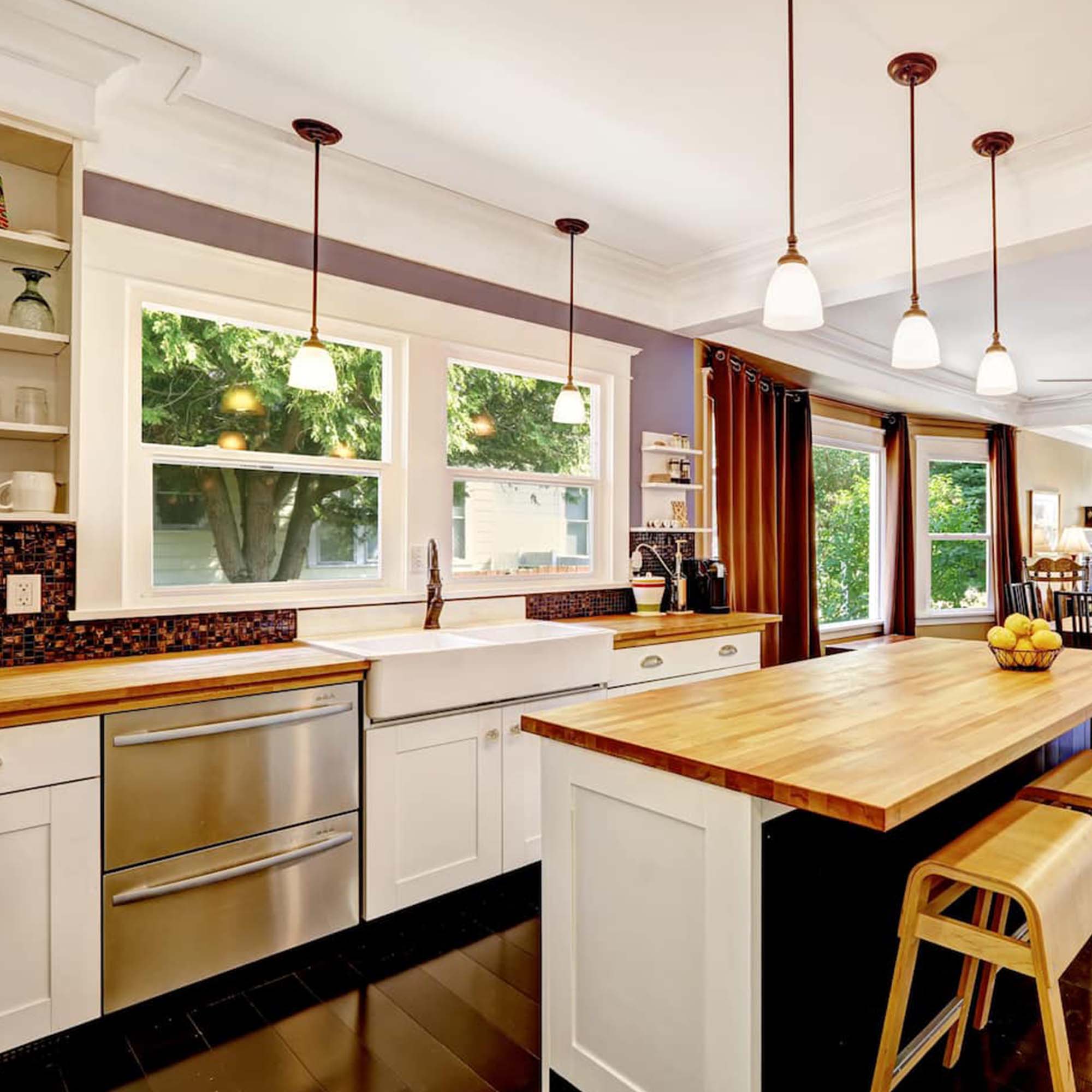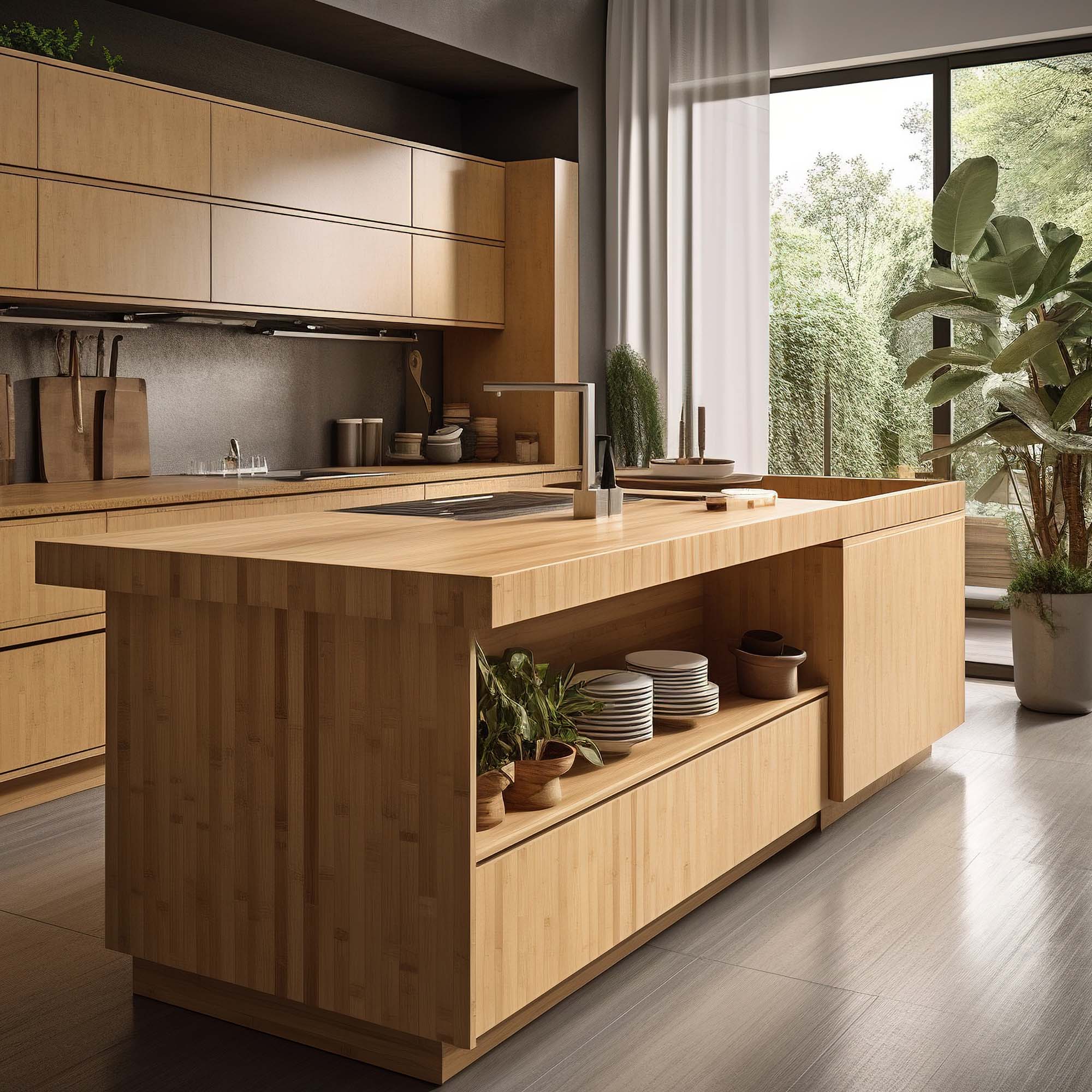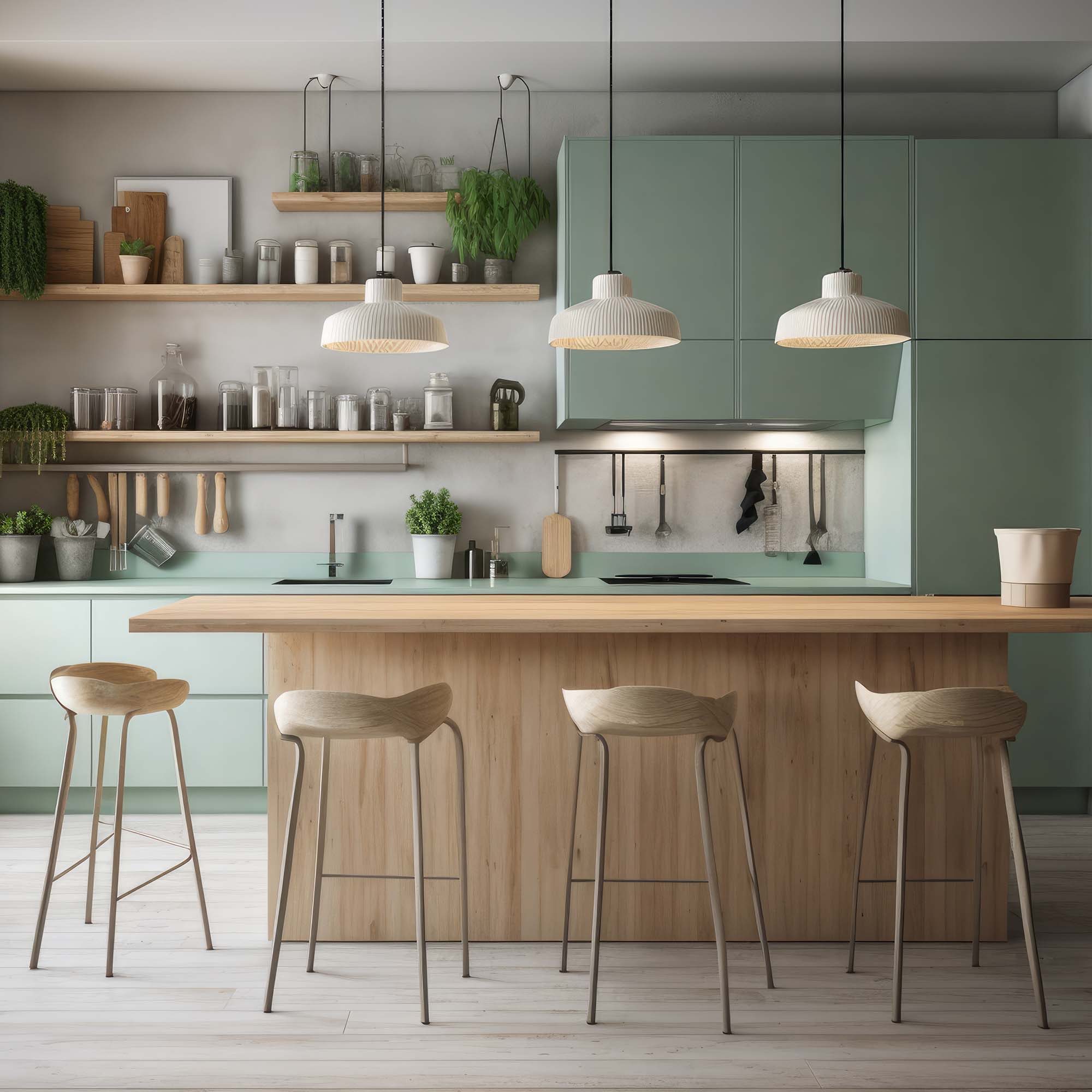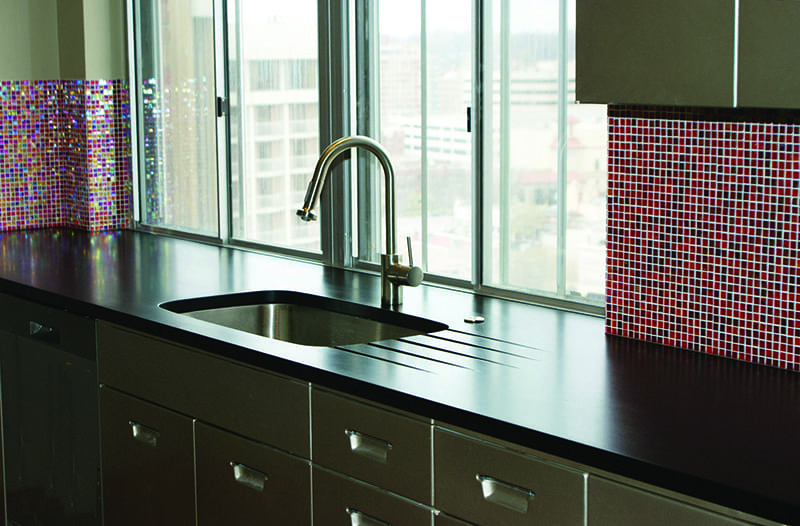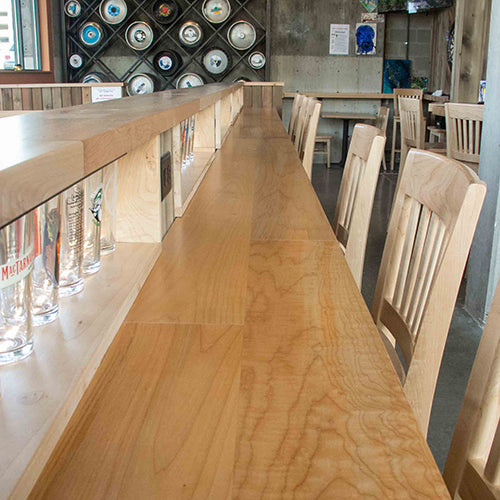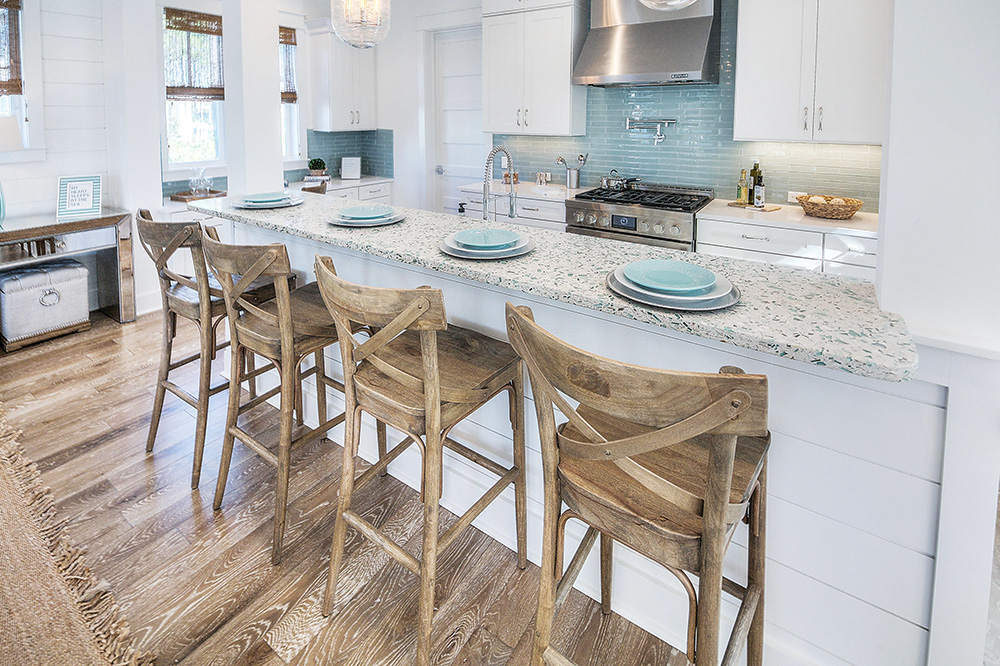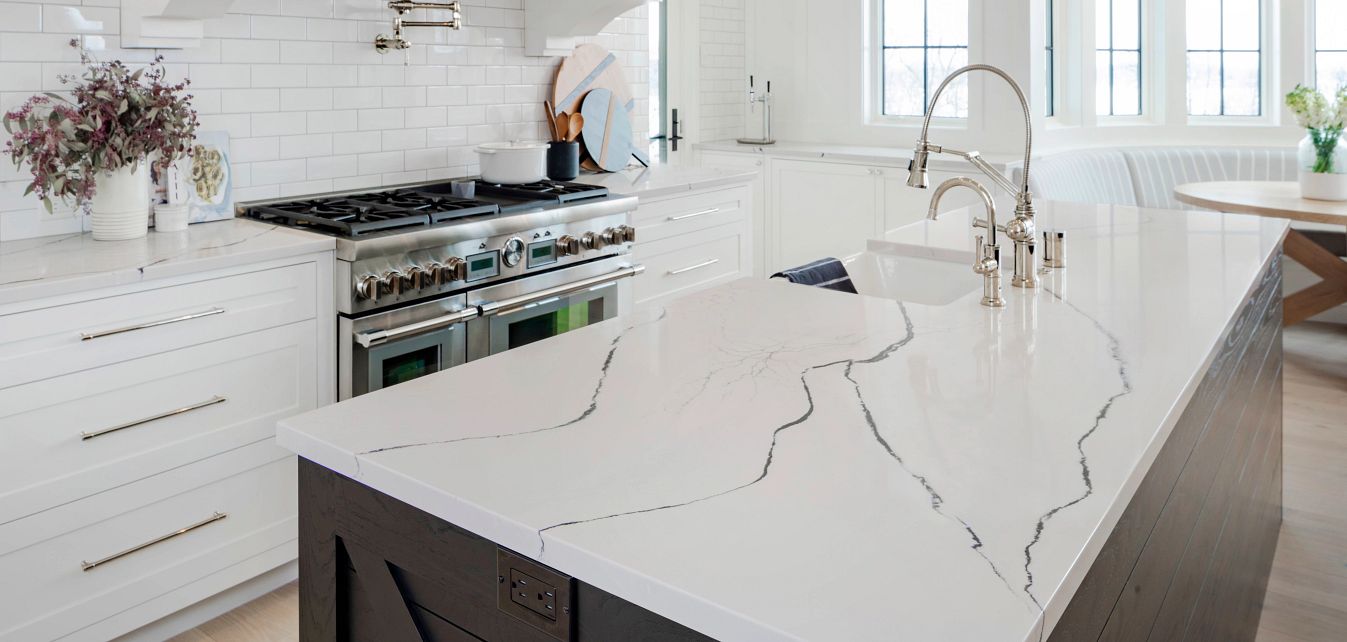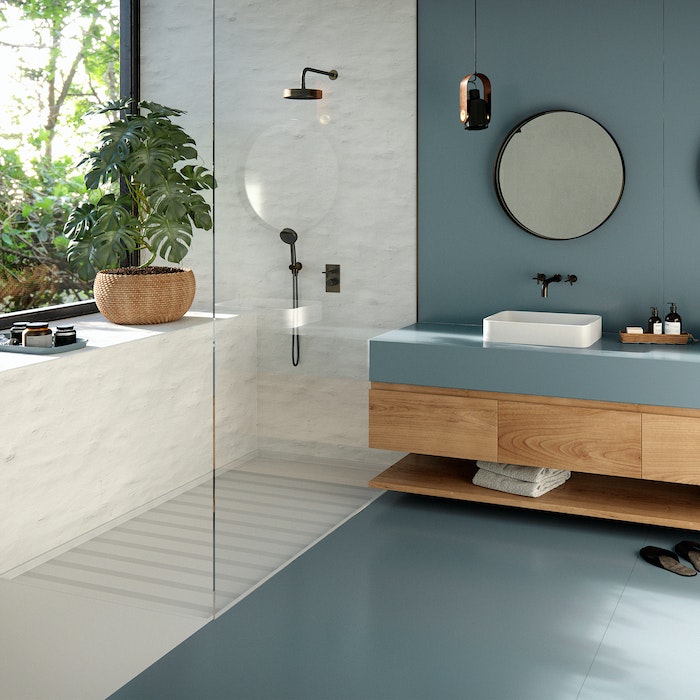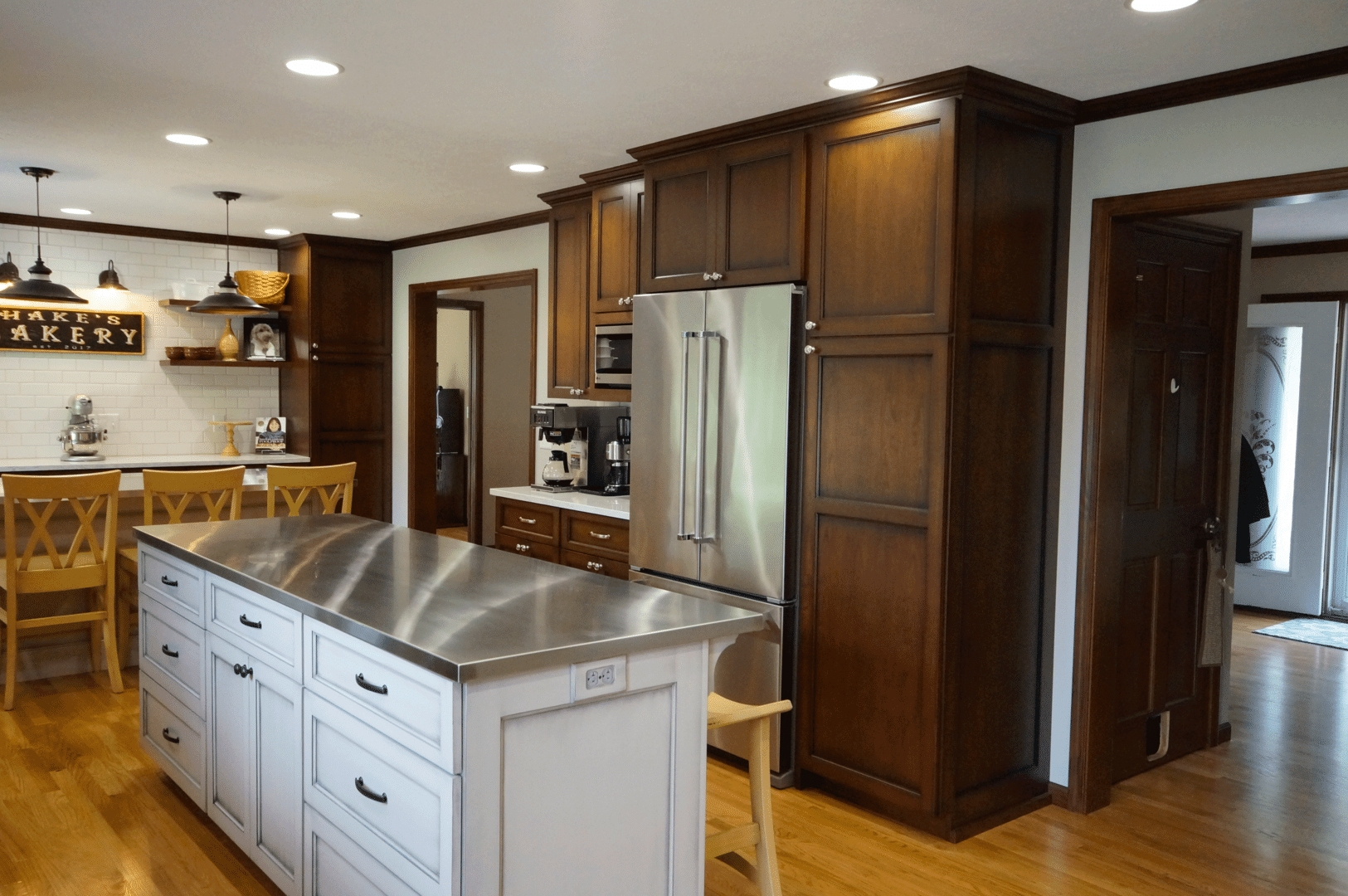How do we meet our needs without compromising the ability of future generations to meet theirs? To commemorate Earth Day this year, we are celebrating the increased use of eco-friendly materials for interior environments. If you’re considering a remodel — or specifying finishes for a new home — there are many choices that look fabulous, maximize efficiency and minimize your carbon footprint.
THE BENEFITS OF BAMBOO
One of the most rapidly renewing species on the planet, bamboo has recently become popular as an Earth-friendly choice for countertops and cabinetry. In addition to sustainability, here are the upsides of this uniquely beautiful and sturdy material.
- Extremely affordable to buy, install and refinish — bamboo cuts, sands, stains and seals like most hardwoods
- Durable, highly dense surface holds up well to food, moisture and cutting
- Non-toxic, formaldehyde-free varieties can be sealed with food-safe mineral oil and beeswax
- Easy to clean, bamboo contains a naturally-occurring, bacteria-resistant agent that won’t mold or mildew
RECYCLED PAPER AND RESIN
PaperStone’s non-porous surface is made from 100% post-consumer recycled paper and a proprietary, petroleum-free resin that provides a lifetime of stain resistance and absorbs virtually no water.
SALVAGED WOOD
Windfall Lumber’s countertop planks are made from reclaimed Pacific Northwest white oak, maple, walnut and fir. Available in standard and custom sizes, they are crafted with sustainably sourced materials and finished with No and Low-VOC stains and varnishes.
RECYCLED GLASS
Vetrazzo’s slabs are hand-crafted to ensure a smooth, uniform surface. Their proprietary formula combines pre- and post-consumer recycled glass with a binder of additives, pigments and other recycled materials. Their main supply comes from neighbourhood curbside recycling programs, but they also source from post-industrial usage and building demolitions.
NON-POROUS STONE
Quartz countertops are sometimes referred to as “engineered” or “man-made,” but quartz is in fact a natural stone, and one of the hardest — and most plentiful — minerals on Earth. Cambria is committed to sustainability and offers products with recycled content comprised of reused quartz slabs, pigments, and binders.
HYBRIDS
Silestone® Sunlit Days is Cosentino’s first Carbon Neutral collection — a high-performance blend of premium minerals, quartz and recycled glass, made entirely from renewable electricity and recycled water. Cosentino’s commitment to sustainability also includes reducing and offsetting the emissions of the manufacturing process with reforestation projects.
STAINLESS STEEL
What makes this metal so eco-friendly? Stainless steel is completely recyclable at end of use, and the “Architectural Series” from Stainless Steel Kitchens contains 65% to 80% recycled scrap. It’s also non-toxic — with no core materials, ultra low Volatile Organic Compound adhesives, and no chemicals or contaminants used in formation and assembly — so it’s ideal for individuals with sensitivities.

